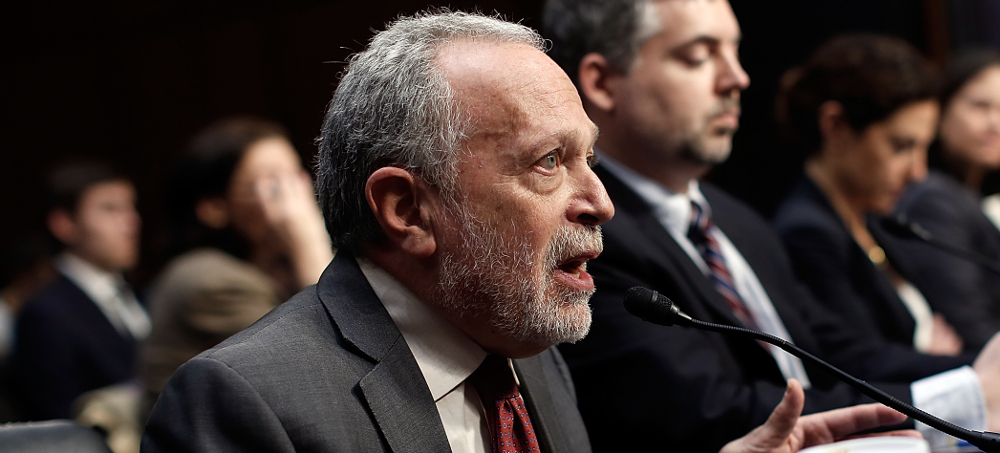Live on the homepage now!
Reader Supported News
The real reason I wanted to read The Catcher in the Rye was it had been banned from the library. I knew the librarian kept one copy behind her desk, and I was determined to get it. She reluctantly handed it to me. I read it voraciously.
There’s no better way to get a teenager to read a book than to ban it.
Which is why it was so clever of the McMinn County, Tennessee, school board to vote to remove Maus from its eighth grade curriculum. Maus is a Pulitzer-winning graphic novel by Art Spiegelman that conveys the horrors of the Holocaust in cartoon form. The board cited “objectionable language” and nudity.
Before the board made its decision, teenagers in McMinn County probably weren’t particularly eager to read about the Holocaust, even in the form of a graphic novel. But now that Maus has been banned for objectionable language and nudity, I bet they’re wildly trading whatever threadbare copies they can get their hands on.
Since it was banned, half the teenagers in America seem to have bought Maus (or insisted their parents do). Two weeks ago, the book wasn’t even in the top 1,000 of Amazon’s bestseller list. Now it’s hovering around number 1.
Way to go, McMinn County school board! Get teenagers all over America excited to read about the Holocaust!
Even the McMinn County school board has been outdone by the Matanuska-Susitna school board in Palmer, Alaska, which presumably had a more serious problem on its hands than getting teenagers excited to read about the Holocaust. It couldn’t even get them to read the great novels of American literature.
So the Matanuska-Susitna school board voted 5 to 2 to ban Invisible Man by Ralph Ellison, Catch-22 by Joseph Heller, The Things They Carried by Tim O’Brien, I Know Why the Caged Bird Sings by Maya Angelou, and The Great Gatsby by F. Scott Fitzgerald.
Brilliant! I bet nearly every teenager in Palmer, Alaska is now deep into these books. They’re probably having intense discussions about them online late at night, away from their parents and other snooping adults. “Why do you think Ellison called himself ‘invisible?’” “How did Angelou come up with those amazing metaphors?” “Why did Daisy Buchanan reject Jay Gatsby?” “Wait! Gotta go! My parents are right outside my room! Call back in 20 minutes!”
The Great Gatsby was required reading when I went to high school. I admit I never read it. Had it been banned, I probably would have devoured it.
Beginning last fall, at least 16 school districts in a half-dozen states have demanded school libraries ban Out of Darkness. It’s a young adult novel about a love affair between two teenagers, a Mexican American girl and Black boy, set against the backdrop of the 1937 natural gas explosion at a New London, Texas plant that claimed nearly 300 lives. The book received lots of favorable reviews and literary rewards, but only a handful of teenagers read before it was banned. Now, it’s hot.
It’s the cleverest marketing strategy I’ve ever seen. Publishers must be clamoring to have school districts ban their books. (Why haven’t my books been banned, dammit?)
An influential group called “No Left Turn” is partly responsible. Just take a look at their website of books “used to spread radical and racist ideologies to students.” (Here’s the link: https://www.noleftturn.us/exposing-books/) You can bet teenagers across America are now lining up to read them.
 Marchers carry a banner depicting Leonard Peltier during a march for the National Day of Mourning in Plymouth, Massachusetts, 22 November 2001. (photo: Steven Sennets/AP)
Marchers carry a banner depicting Leonard Peltier during a march for the National Day of Mourning in Plymouth, Massachusetts, 22 November 2001. (photo: Steven Sennets/AP)
Millions have called for Peltier’s release since his incarceration, including Nelson Mandela and Bishop Desmond Tutu before their deaths. It’s time to act
Freedom for Peltier is one step towards addressing centuries of injustice facing Indigenous people as well as addressing the inhumane conditions of incarceration that have been exacerbated by the pandemic.
Peltier, the longest-held Indigenous political prisoner in the United States, is facing a potentially life-threatening situation. He is an elderly Anishinaabe and Dakota man who suffers from several serious underlying conditions: his age, diabetes, hypertension, heart condition and abdominal aneurism make his health precarious in prison without Covid-19 – and ever more dire with it.
Peltier is locked away in a prison Covid-19 isolation unit – which is not a medical unit – even though the man who helped put him there has called for his release. James Reynolds, one of the main federal prosecutors who put Peltier behind bars in 1977, wrote to Biden last year asking the president to commute Peltier’s sentence and to grant him executive clemency. Why? According to Reynolds, the government had lied, deceived, used racism and faked evidence to sentence Peltier for two consecutive life terms in prison.
Peltier’s co-defendants were found not guilty by reason of self-defense for the 1975 killing of two FBI agents in Oglala on the Pine Ridge Indian Reservation in South Dakota during a shootout with members of the American Indian Movement. Law enforcement killed Joseph Stuntz, a young Native man whose killing was never investigated. Years of appeals processes have poked holes in the validity of the government’s theory. Peltier’s conviction in that case rests solely on the basis that he was present on the reservation with a weapon that day – not that he fired a fatal shot or had any hand in killing anyone. So why is he still in prison?
It’s Leonard Peltier who now faces death. For months he, like many incarcerated people, has begged for a booster shot. Prison officials denied him one. Guards and staff have been observed improperly wearing masks or not wearing them at all. And now that he has Covid, it raises the question: who is to blame if the unthinkable happens?
Certainly, those with the power to release Peltier must act soon or bear responsibility.
Native people are building political power. The water protector movement that began at Standing Rock in 2016 was a watershed moment. Native people have made historic gains, such as the appointment of Deb Haaland as Secretary of the Interior, the first Native woman to hold a cabinet-level position. But still Native people face high rates of criminalization, incarceration and threats posed to their land, water and sovereignty. This is the chance to chart a new path, to reverse backwards and racist actions of the past.
Millions have called for Peltier’s release since his incarceration. Nelson Mandela and Bishop Desmond Tutu before their deaths pleaded with the United States to free Peltier, joining Jesse Jackson, Rigoberta Menchu and Harry Belafonte and many more. Leaders in Indian Country have also chimed in. Last Fall, the National Caucus of Native American State Legislators unanimously passed a resolution calling for Peltier’s release, a movement led by Ruth Buffalo, a representative from North Dakota. The National Congress of American Indians has historically called for Leonard Peltier’s freedom. Many Tribal Nations have also continued to petition the White House.
A movement on Capitol Hill is also growing. Numerous House Democrats have written to Biden. And Senator Brian Schatz from Hawaii, chair of the Senate committee that oversees Indian affairs, wrote a letter last week demanding Peltier’s release.
Leonard Peltier’s defense committee is simply asking the Bureau of Prisons to follow its own policy. According to Department of Justice’s Covid-19 guidelines for elderly or immunocompromised inmates or those with co-morbidities, Peltier qualifies for release to home confinement. Any argument the government may put forward that he may pose a “threat” or “danger” to the community is absurd given the unjust nature of his imprisonment. Indian Country also wants their elder back. And the Turtle Mountain Band of Chippewa, where Peltier is enrolled, has offered to house and to take care of a respected member of their community upon his release.
No more suffering, no more death, no more tragedy. It can end now. It’s time for Biden to free Leonard Peltier.
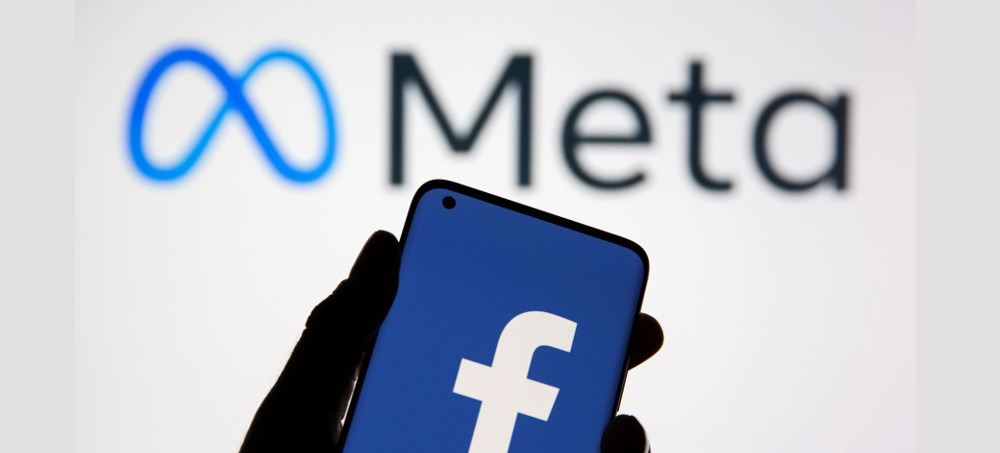 'Meta stock slumped by 26.4% Thursday, meaning it shed nearly $240 billion.' (photo: Getty)
'Meta stock slumped by 26.4% Thursday, meaning it shed nearly $240 billion.' (photo: Getty)
ALSO SEE: A Change by Apple Is Tormenting Internet Companies,
Especially Meta
Its valuation slumped by nearly $240 billion as its shares fell 26.4%.
After markets closed on Wednesday, Meta, formerly known as Facebook, said in its fourth-quarter earnings report that Facebook's daily active user base shrank for the first time in its history. Meta also reported $10 billion in operating losses from its nascent metaverse business.
Meta's 26.4% stock slump Thursday left it valued at $661.4 billion compared with its $898.5 billion market capitalization when Wall Street closed Wednesday – a loss of $237.1 billion.
Facebook previously held the record for the largest one-day loss in value in US corporate history. In July 2018, the company shed $119 billion in market cap in a single day after reporting slowing growth in its second-quarter earnings. It was the largest one-day market cap slump at the time.
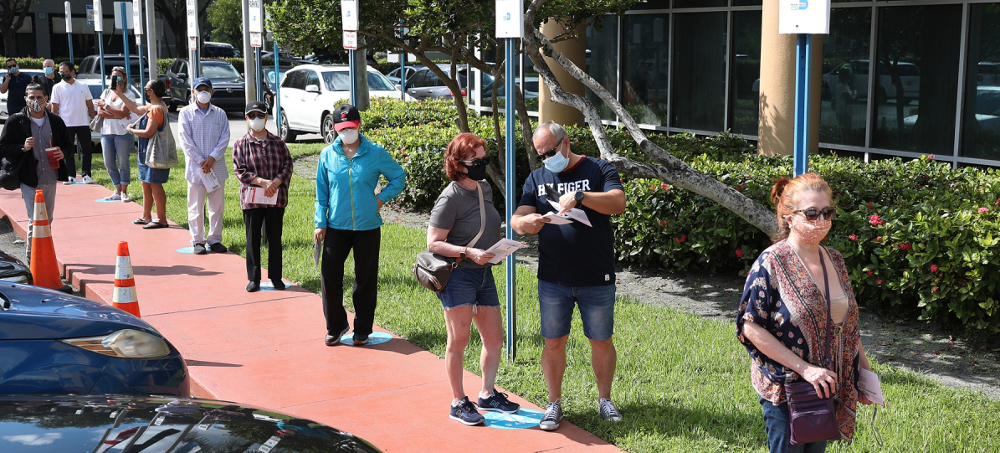 Voters wait in line to drop off their vote-by-mail ballots at the Miami-Dade Election Department headquarters on Oct. 14, 2020, in Doral, Florida. (photo: Joe Raedke/Getty)
Voters wait in line to drop off their vote-by-mail ballots at the Miami-Dade Election Department headquarters on Oct. 14, 2020, in Doral, Florida. (photo: Joe Raedke/Getty)
A local news outlets spoke with multiple residents of a Miami housing project who say they were duped. The vice chair of the state’s Ethics and Elections Committee is calling for an investigation
“Is this something that is happening in other places?” state Sen. Annettte Taddeo, a Democrat, said over the phone after the leaving the Senate floor on Thursday. “I don’t know, that’s the reason for the request for the investigation. We need to know if this is an entire program they’ve been doing.”
The report follows a December story about an unidentified 84-year-old woman in the same complex, Haley Sofge Towers, who was duped last fall. WPLG Local 10 News confirmed that the woman’s party affiliation was changed by a third-party voter registration organization, which regularly canvas neighborhoods to help people register to vote, and that the third-party organization was the Republican Party of Florida. The woman’s granddaughter says she and her grandmother discovered the change when her grandmother received a new voter registration card in the mail, and that neither gave permission for the party change.
Taddeo says that her office began receiving calls after the initial incident was reported in December. “We started getting phone calls in my office from people saying the same thing happened to me. We talked to those people, we talked to other people. People even shared pictures with us, of the forms, of their former voter registration registration card and their new voter registration card.”
Taddeo sent a letter to Florida Secretary of State Laurel Lee, a Republican, requesting an investigation, but says she did not receive a response. Secretary Lee’s office did not immediately respond to a request for comment from Rolling Stone.
The letter sent Thursday is addressed instead to the supervisor of the Miami-Dade Elections Department. “It no longer appears that this was an isolated incident but a targeted effort to swindle one of our most vulnerable populations: our elders,” the letter read.
The report published Wednesday by WPLG Local 10 News includes multiple accounts of residents who say they were scammed. “They said, ‘We’re doing the renewals on the voter registration, would you like to renew?’ resident Armando Selva told the outlet of the people knocking on doors of the building in Republican Party of Florida hats. “I didn’t do anything, but they changed the party,” added resident Juan Carlos Salazar, who said he was sent a new voter registration identifying him as a Republican.
“Every one of them has said they have been Democrats their entire life,” says Taddeo. “They weren’t trying to switch. It’s very concerning.”
It’s especially concerning considering the state’s closed-primary system. Taddeo notes that any of the voters whose affiliation was changed from Democrat to Republican would not be eligible to vote in Democratic primaries.
The Republican Party of Florida did not immediately respond to a request for comment from Rolling Stone, but in December the party’s executive director, Helen Aguirre Ferre, told WPLG Local 10 News that the party “conducts its voter registration operation in accordance with all applicable laws and regulations.”
“Voters are free to register to a political party at anytime or may choose not join a political party at all,” Ferre added. “It is up to the individual to decide. At no time was [the 84-year-old woman’s] voter registration changed without the registrant’s permission. She filled the application out herself and signed the document as the process requires.”
The woman’s granddaughter told WPLG Local 10 News that though the woman signed the paperwork, she did not realize she was changing her registration. It is unclear who checked the party affiliation box on the form.
In November 2021, Gov. Ron DeSantis announced that registered Republicans in Florida outnumbered Democrats for the first time. The milestone was the result of a concerted voter registration push that helped the party close a 24,000-registration gap that existed in August. As the vice chair of the state’s Ethics and Elections Committee, Taddeo has been fighting DeSantis’ effort to suppress the vote in Florida — which has even included the proposed creation of a new election police force, drawing concern from voting rights advocates.
“If the governor is not worried about his reelection,” Taddeo says, “if this is just a done deal and everybody should just walk away because Democrats aren’t going to win no matter what, why are they working overtime to try to change voters’ registration, to make sure voting is harder, to make sure all of these things are put in the way of people exercising their right to vote, particularly minorities?”
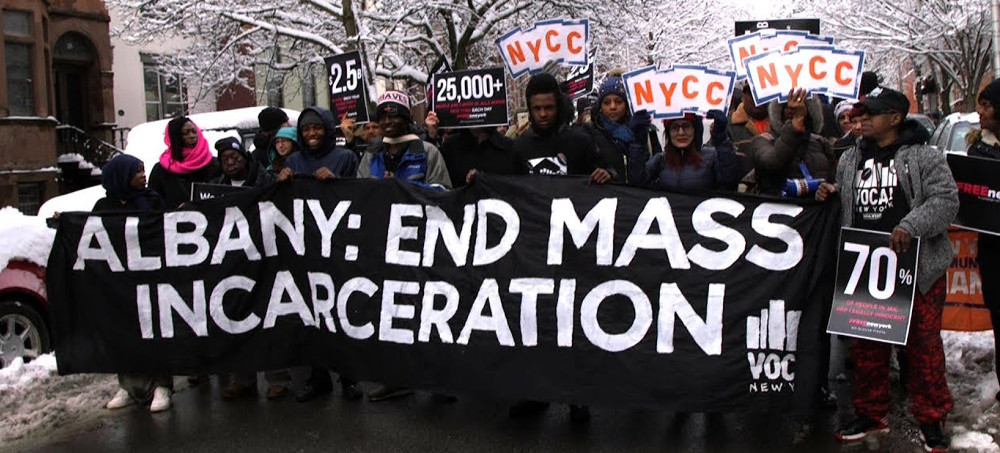 The criminal justice reform movement has helped elect progressive prosecutors, but establishment forces sometimes work to curb their power. (photo: YouTube)
The criminal justice reform movement has helped elect progressive prosecutors, but establishment forces sometimes work to curb their power. (photo: YouTube)
Even when progressive prosecutors win voter support, establishment forces sometimes work to curb their power.
“It was a very progressive platform, and I was very vocal about wanting to run to address systemic racism,” she said.
She promised to lock up fewer people and curb low-level drug prosecutions.
But pushback was swift. First, the governor tried to cancel the election. He failed, and she won. Then, conservatives pushed to redraw her two-county district in their favor.
And this year, Republican legislators are backing a bill that could dramatically affect reform-minded prosecutors like Gonzalez across the state. If it passes, the measure would create an appointed oversight committee with the ability to remove state attorneys from office if they won’t prosecute certain crimes — like the small-time drug charges Gonzalez vowed to avoid.
“Prosecutors seeking to reform the system or address racial inequities are being targeted by partisan legislators,” said James Woodall, a public policy associate at the Southern Center for Human Rights. “This bill is an attempt to take away their discretion.”
The fight in Georgia highlights an emerging pattern across the country: Even when progressive prosecutors win voter support, establishment forces sometimes work to curb their power. From Virginia to Missouri to Texas, conservatives have backed bills allowing the state to take over cases local district attorneys choose not to pursue, undermining the ability of elected prosecutors to carry out reforms that led voters to support them in the first place.
Conservatives typically argue that these prosecutors’ less punitive policies are a threat to public safety. In response, progressives like Gonzalez often say that their policies keep people out of jail for small crimes that do not endanger the public, and that some research shows incarceration itself can increase crime.
Experts say it’s a new iteration of an old battle between state and local authority, amplified by the fact that traditionally prosecutors were the establishment forces and now, in some places, they’re not.
When I got arrested on a drug possession charge in late 2010, I didn’t know much about what district attorneys did and probably couldn’t have named a single one besides Jack McCoy from “Law … Order.” I certainly had no clue how much power they had when it came to decisions like which charges to prosecute, and — as importantly — which charges not to.
My first hint was in county jail, where I was thrilled to spot a close friend sitting near me in the visiting room. I knew I was facing prison time and did not expect to see many familiar faces where I was going.
“You were so lucky,” he told me.
It sounded ridiculous — but he knew more about the system than I did because he’d been in and out of jail before. He explained: If I’d been arrested one county over, where prosecutors were more conservative, they probably would’ve stacked on other charges — such as intent to distribute the drugs — and I’d be looking at a decade or more behind bars. Instead, in deep blue Tompkins County, they’d probably stick with just the one charge, and I’d be looking at a fraction of that time.
My friend was right, and in the end I got sentenced to 2.5 years.
The district attorney whose office prosecuted me in 2011 touted rehabilitation and reform. I never heard her described as a progressive prosecutor at the time; it wasn’t until a few years later that justice reformers started turning their attention to harnessing the power of prosecutors who spoke of reversing mass incarceration, rejecting low-level drug cases, prosecuting police and fighting systemic racism.
Reformers won elections from Boston to Philadelphia to Dallas, but they also drew criticism — especially from law enforcement unions and other prosecutors. In 2019, U.S. Attorney General Bill Barr said prosecutors who “style themselves as ‘social justice’ reformers, who spend their time undercutting the police, letting criminals off the hook and refusing to enforce the law” are “demoralizing to law enforcement and dangerous to public safety.”
In some jurisdictions, such criticisms have led to recall efforts — most notably against George Gascón in Los Angeles and Chesa Boudin in San Francisco. (San Francisco is headed for a vote this year, while L.A.’s failed to pass — though Gascón’s opponents are trying again.) Elsewhere, they’ve led to legal efforts to erode prosecutors’ discretion to not press charges and not seek the harshest penalties.
One of the first high-profile examples of this was in Florida, after Aramis Ayala won the 2016 race for state’s attorney and announced her office would stop seeking death sentences. Republican Gov. Rick Scott transferred several capital cases to another state’s attorney who supported the death penalty. Ayala sued, but in 2017 the Florida Supreme Court sided with Scott.
Two years later, Pennsylvania legislators undercut Philadelphia District Attorney Larry Krasner with a bill allowing the state attorney general to prosecute gun crimes — only in Philadelphia, and only until the end of Krasner’s first term. After the change sparked fervent pushback, the attorney general vowed he wouldn’t use the new law and would support its repeal.
The following year in Indiana, Ryan Mears became Marion County’s top prosecutor and announced that he would stop pursuing low-level marijuana cases. In response, Republican lawmakers introduced a bill allowing the state to take over cases that locally-elected prosecutors like Mears decide not to pursue across the board, like minor drug crimes. That didn’t pass, but it’s up for consideration again this year.
The proposal in Georgia takes a bolder approach, creating a mechanism to oust reform-minded district attorneys altogether. The measure gained steam after the 2020 murder of Ahmaud Arbery, an unarmed Black man who was killed by three white men while jogging. The way prosecutors handled the case — and the fact that it took three months to pursue charges — helped spark bipartisan interest in improving prosecutorial accountability.
But Democrats worried the proposal could become a political weapon. Though the measure would make it easier to hold prosecutors accountable for misconduct or remove them for incompetence, it would also allow the commission — appointed by the Republican governor and legislative leaders — to oust prosecutors who categorically avoid pursuing certain charges.
“The role of the district attorney is to follow the law and prosecute criminals,” Republican state Rep. Houston Gaines told Flagpole, a local magazine, in December. Gonzalez, he added, is not doing that. “That’s something that I believe the state must look at across the board, and I believe we will, and we will do it very soon, because it is putting communities at risk.”
Gaines didn’t respond to a request for comment, and neither did several of the bill’s sponsors.
They have until the beginning of April to pass the measure. And Gonzalez is concerned.
“There had always been this expectation that DAs were going to be tough on crime,” she said. But DAs have also always had discretion to choose what cases to prosecute and how to charge them.
“It’s the same tool,” she said, “and it’s being used by a different set of people with a different set of goals.”
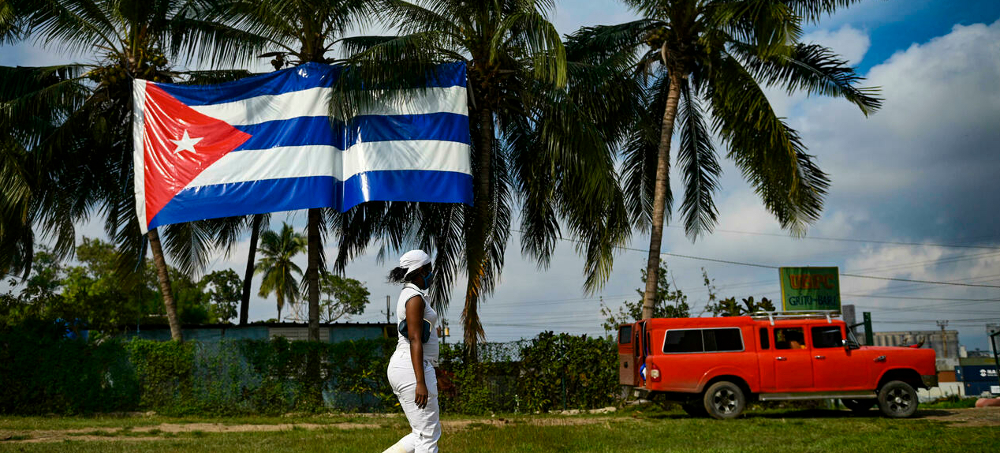 'President Joe Biden lives up to Kennedy's legacy and the ambitions of his Cuban embargo.' (photo: Yamil Lage/Getty)
'President Joe Biden lives up to Kennedy's legacy and the ambitions of his Cuban embargo.' (photo: Yamil Lage/Getty)
The US embargo impacts every aspect of life on the island – and that is the precisely the point
Here in Havana, though, the isolating effects of the US embargo are impossible to ignore. The docks are half-empty: the US has banned all cruise ships, cultural exchange and educational delegations that once drove the largest industry on the island. The Western Union branches are shuttered: the US has banned all remittances through Cuban firms and their affiliates to the millions of Cuban families that rely on assistance from abroad. The hospitals are understocked: the US embargo has forbidden the export of medical technology with US components, leading to chronic shortages of over-the-counter medicine. Even the internet is a zone of isolation: the US embargo means that Cubans cannot use Zoom, Skype or Microsoft Teams to communicate with the outside world.
In short, the US embargo impacts every aspect of life on the island – and that is the precisely the point. Sixty years ago on this day, President John F Kennedy introduced Proclamation 3447, Embargo on All Trade with Cuba, designed to isolate Cuba and stop the spread of so-called Sino-Soviet Communism “Every possible means should be undertaken promptly to weaken the economic life of Cuba,” the assistant secretary of state, Lester D Mallory, wrote in an April 1960 memo. The goal of the Kennedy administration was clear: “To bring about hunger, desperation and overthrow of government.”
Today, Joe Biden lives up to Kennedy’s legacy and the ambitions of his Cuban embargo. Not only has the president refused to undo the extraordinary sanctions imposed by the Trump administration, reneging on his campaign promise to restore diplomatic relations and leaving Cuba on the list of “state sponsors of terrorism”. He has also doubled down on the embargo, tightening restrictions and imposing a host of new sanctions against the Cuban government.
Both the Biden administration and its Republican opposition claim that these measures are targeted at the regime, rather than the Cuban people. But the evidence to the contrary is not only anecdotal. The UN estimates that the embargo has cost Cuba over $130bn in damages – costs that are compounded by the penalties imposed by the US Office of Foreign Assets Control (OFAC) on Cuba’s allies and investors. Between April 2019 and March 2020 alone, OFAC penalties amounted to over $2.4bn, targeting banks, insurance firms, energy companies and travel agencies alike.
The effect of the embargo is therefore both local and global: it cripples the Cuban economy and undermines the multilateral system that the US claims to lead.
The UN Food and Agriculture Organization (FAO) reports that the embargo has had a “direct impact” on its operations in Cuba, citing costs, losses and damages that have resulted in drastic reduction of agricultural output on the island – despite the fact that FAO is “officially exempted” from the embargo.
The UN development program (UNDP) cites its own challenges in the implementation of projects like its Global Fund to Fight Aids, Tuberculosis, and Malaria in Cuba – in particular, when Toyota Gibraltar Stockholdings was forced to cancel the supply of vehicles to the UNDP office as a result of tightened US restrictions in 2018.
And the UN Environmental Program (UNEP) highlights the ways in which the US embargo “not only affects that Caribbean country but also the subregion and the United States itself”. According to the UNEP, the embargo “eliminates” the possibility of regional cooperation on environmental issues and prevents the diffusion of critical technology to drive a green transition on the island.
Critics of the embargo often rely on moral claims to make their case. It is no doubt a strong case: by its own admission, the US aims to “starve” the island of Cuba, and it is succeeding. The US coast guard reports that 586 Cubans have attempted to cross the ocean in the first fiscal quarter of 2022 alone, but the US government – despite its clear intention to inflame outward migration – refuses to welcome them. “Allow me to be clear,” the homeland security secretary, Alejandro Mayorkas, said to Cuban migrants, “if you take to the sea, you will not come to the United States.”
But a much broader buffet of arguments is on offer to challenge the Cuban embargo on the occasion of its 60th anniversary. One is legal: Biden has called to “defend the liberal international order”, but his embargo clearly violates the UN charter and the international law it enshrines. Another is geopolitical: for the 29th consecutive year, members of the UN general assembly have voted to end the embargo by an overwhelming vote of 184 to two; with US hegemony on the wane, it can little afford such a flagrant display of unilateral force. And still another argument is democratic: 57% of US voters support lifting the embargo, while only 29% oppose; by enforcing the embargo, Joe Biden has allowed a minority of ageing defectors in southern Florida to dictate the foreign policy of an entire administration.
Most of all, though, the embargo fails the test of its own logic. In its comments to the UN general assembly last year, the Biden administration argued that the embargo aims to “support the Cuban people in their quest to determine their own future”. But the Biden administration does not dare to explain how making Cuba poorer, sicker and more isolated supports their quest for self-determination. It is a cornerstone of US foreign policy that growth, wealth, and international integration are pathways to freedom. “Starving” the island of Cuba, then, sounds more like administering torture than paving the way to freedom.
In his speech on the Senate floor, Marco Rubio argued that the US embargo is just a scapegoat for the communists of Cuba, a “talking point” for the regime. If that is the case, then, why not lift the embargo and take the talking point away? If communism is a failed system, then why not let it fail on its own terms, and let Cubans see for themselves the true face of their revolution? What is Marco Rubio so afraid of? If we are committed to supporting Cubans’ “quest to determine their own future”, then there is only one way forward: end the embargo, and let Cuba finally live.
 Seven-month-old twin manatee calves nurse at the same time at Blue Spring State Park in Volusia County. (photo: AP)
Seven-month-old twin manatee calves nurse at the same time at Blue Spring State Park in Volusia County. (photo: AP)
Manatees are starving to death by the thousands. I have looked into the innocent eyes of these massive but gentle giants. Yet I cannot possibly understand the pain and agony of the starvation they are enduring.
Perhaps it is just a coincidence that manatee and manna have the same root. The definition of “manna” is an unexpected aid, advantage or assistance, as in the biblical phrase “manna from heaven,” referring to the miraculous food The Lord provided to the Israelites as they wandered in the wilderness. In Florida’s springs, there is indeed manna for manatees.
In the mid-1980s I censused the manatees living in the Lower St. Johns River from Jacksonville upstream to Palatka. From a light airplane, manatees were quite visible even in the tannic waters and it was possible to record their numbers and favored habitats by flying up and down the study area.
I especially remember seeing manatees nibbling on boat anchor lines while the fishermen appeared to be unaware the large animals were so close. At that time, manatee populations in the St. Johns were expanding from their historic lows due to increased awareness of the need for manatee no-wake zones to reduce motor boat impacts to the slow-moving mammals.
The recovered St. Johns River manatee population is now one of the most productive and successful in the state. Just last month, the Volusia Blue Spring winter manatee population set a new record of 663 individuals in the spring run.
But seagrasses have disappeared over much of the St. Johns River. The same problems decimating eelgrass in the Indian River Lagoon are occurring in the Lower St. Johns — elevated nutrient pollution, blooms of floating algae and shading of the submerged aquatic plants that manatees favor.
Manatees may soon be starving in the St. Johns River due to similar issues observed in the Indian River Lagoon. One way to support and maintain the St. Johns River manatee population is to make sure the springs and their ample aquatic plant communities and warm water refugia are accessible to the manatees.
Silver Springs, the Silver River and the 20 “lost springs” of the Ocklawaha River must be opened to succor these manatees. The Rodman/Kirkpatrick Dam must be breached to allow more manatees as well as other migratory aquatic species such as striped bass to reclaim this historic habitat area.
Like manna from heaven, the entire Silver River and much of the Ocklawaha River are full of rapidly growing submerged aquatic vegetation favored by manatees. The outdated and on-the-brink-of-structural-failure Rodman dam is the only obstacle to this manatee Garden of Eden.
Florida’s artesian springs are likely the principal reason the state has long had a year-round, breeding population of manatees. Thermal effluents from coastal power plants have offered refuge from winter cold stress but have not provided suitable food resources.
With increasing pollution of these waters by Florida’s growing human population and lax water quality enforcement, manatees are not able to thrive. Continued reliance on power plant thermal effluents and lettuce buffets is not a long-term assurance of a healthy manatee future.
Accessible springs are an important part of the solution to the plight of starving manatees. And breaching the Kirkpatrick Dam to allow manatee access to extensive feeding areas is a critical next step for manatee viability.
Follow us on facebook and twitter!
PO Box 2043 / Citrus Heights, CA 95611

